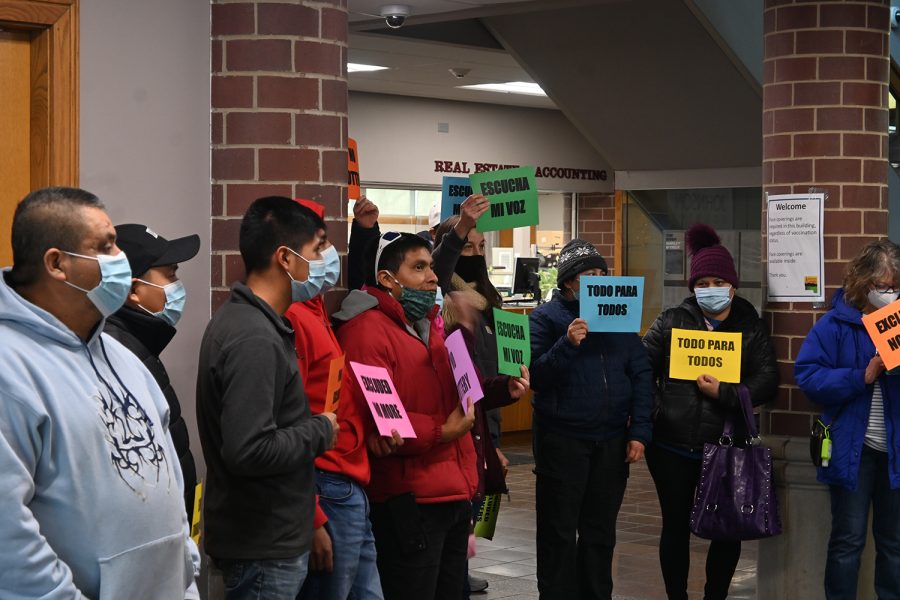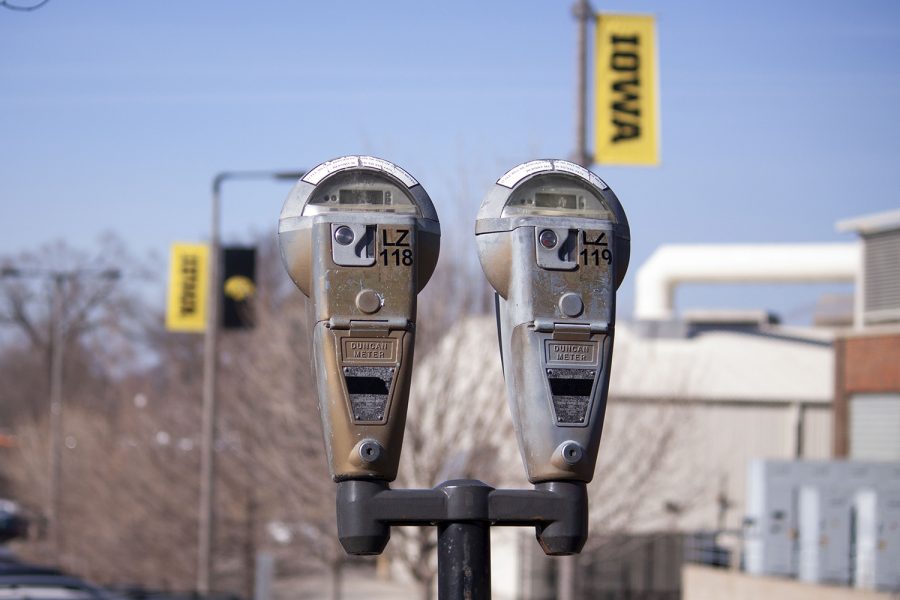Iowa City city councilors say nothing but good would come from approving a tax-increase that may help to beautify and develop downtown, but at least a couple downtown business owners worry about the price.
The petition for a tax levy — formally called a Self-Supporting Municipal Improvement District — will create an area of local property and business owners who tax themselves to gather funds with the goal of bringing more shoppers downtown.
Organizers plan to submit a petition calling for the district later this week. And with no opposing petition being submitted, municipal-district organizers expect the petition to gain City Council approval.
“I think it is a great idea, and I really hope they get great support,” said Councilor Susan Mims. “I hope that a majority of property owners who didn’t sign understand the value of the project.”
The most controversial issue the petition outlines is a tax increase of $2 per $1,000 of assessed property value. Property owners were the only people allowed to sign the petition, but, depending on renter-owner agreements, in some cases the renter must pay the tax.
The petition states collected funds will be used for beautification, holiday lighting improvements, hiring a business-development manager to bring traffic into downtown, as well as expanding the Park and Shop/Bus and Shop program.
Karen Kubby, the owner of Beadology, 220 E. Washington St., and the Downtown Association’s municipal-district committee chairwoman, said 142 property owners have signed the petition to create the levy so far. Although signatures are still coming in, Kubby estimated that more than 30 percent of property owners in the proposed district have signed the petition — far more than the state law requirement of 25 percent.
But the petition does not outline a clear plan as to how to bring more people into the downtown, which has one business owner worried.
“They shouldn’t have the money until we have an objective and a goal,” said Joe Murphy, a part owner of the TCB Pool Hall, 114 E. College St. “They have no plan other than hiring people and spending money.”
Kubby disagreed, saying that outlining specific plans would have overstepped the committee’s bounds, because those duties would belong solely to the municipal district’s Advisory Board — which would be created if the petition passes the City Council Sept. 6. The board would be composed of a range of members representing the different businesses and properties involved. That board would also include the University of Iowa, which has pledged a $100,000 match to the expected $200,000 leverage.
“The board will represent members from big business to small business, big property owners to small property owners, a representative from the university — all the different stake-holders will be represented and be accountable to peers about money being spent,” Kubby said.
Murphy’s main complaint is that this new tax will jeopardize his livelihood. He said he pays close to $40,000 in property tax a year and that the new tax would add $3,000 to his yearly taxes.
“We’ve only been around three years and still struggling with a high debt-load, put houses and other businesses on the line,” Murphy said as he pointed out he had to continue refinishing his floors. “If we don’t make it, I lose everything, and I’m not going to stand for people telling me they’re going to spend my money for me.”
Nonetheless, Mims and Councilor Mike Wright said they hope no business is pushed out of the downtown because of the tax; however, Mims said because of the demand for space downtown, if any business did go under, it would not have negative effect on the area.
“I have communicated with many small businesses, and many are excited about it even though they acknowledge it may be a stretch,” said Councilor Regenia Bailey. “They see the greater good.”
However, Murphy and other owners such as Jim Bell, the owner of Deadwood Tavern, 6 S. Dubuque St., fear a tax like this could drive them out.
“Best possible case: If it does work it’s going to increase property values and increase property tax and guess what that does for me? Not a damn thing but cost me more money,” Murphy said.






